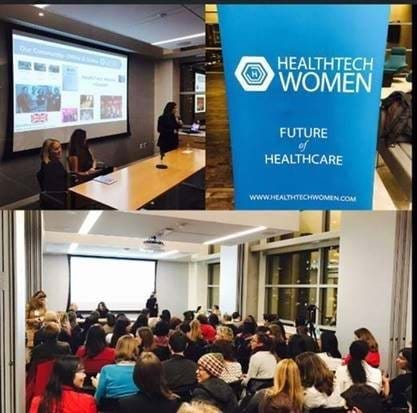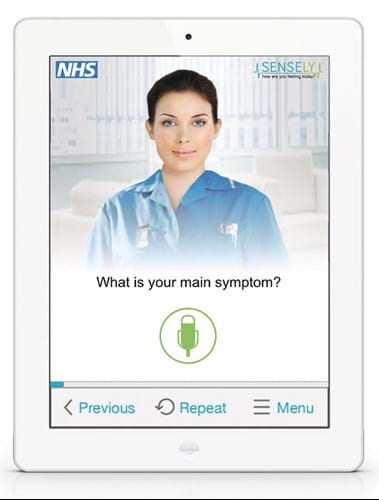
Is AI What the Doctor Ordered?
During the 35th J.P. Morgan Healthcare Conference (JPM) in San Francisco last January, attendees like me were deluged with headlines about deal-making, new health technologies and Trump’s plans for healthcare.
The uncertain fate of the Affordable Care Act, FDA leadership and the investment climate has left the healthcare industry reeling. Despite the ambiguity that comes with a new administration, several basic tenets of healthcare are here to stay. Person-centricity. Accessibility. Affordability. And technology helps make that possible. Calling pharma and biotech companies “nontechnology” companies is no longer accurate. At JPM, and at the Consumer Electronics Show’s Digital Health Summit days before, it became ever clear they’re embracing digital to go “beyond the pill.”
One example of the convergence of pharma and digital health that stood out to me at JPM was the rise of artificial intelligence (AI) and machine learning in healthcare. AI has diverse applications across healthcare: medication management, drug discovery, virtual nurses and health coaches, and making sense of complex data.
 AI may even be able to detect what doctors can’t. Dr. Leeda Rashid, director of clinical quality at Lumiata, a predictive analytics company, kicked off a HealthTech Women event with an anecdote from her time as a family physician in Los Angeles. One of her patients had stage four breast cancer, and showed all the signs that pointed to a life-threatening diagnosis. But, the woman lost track of her symptoms in the mounds of data she had accumulated after multiple doctor visits.
AI may even be able to detect what doctors can’t. Dr. Leeda Rashid, director of clinical quality at Lumiata, a predictive analytics company, kicked off a HealthTech Women event with an anecdote from her time as a family physician in Los Angeles. One of her patients had stage four breast cancer, and showed all the signs that pointed to a life-threatening diagnosis. But, the woman lost track of her symptoms in the mounds of data she had accumulated after multiple doctor visits.
AI can prevent such devastating incidents, Dr. Rashid said, by predicting who is going to get what disease, when — and why. Genetic risk is one factor, but the social determinants of health are another. For example, if someone doesn’t have insurance or access to public transportation, that may impact her ability to get to appointments — and a timely diagnosis.
I couldn’t help but be reminded of our Stories in Motion study. Patients are consumers. They’re people, above all else, deciphering information from multiple devices and multiple channels to make the best healthcare decisions possible. It’s up to us to help our healthcare clients reach people where they’re at, whether in the doctor’s office or via the device in their palm. Another panelist, Dr. Ivana Schnur, co-founder and chief medical officer of Sense.ly, is banking on the latter. People who don’t take their medications as prescribed cost the healthcare system $300 billion per year. Dr. Schnur thought, who better to hold patients accountable than a virtual nurse?
That was the genesis of Olivia. Don’t be fooled by her soothing voice and gentle bedside manner. With the help of AI, Olivia speaks 22 languages, knows your allergies and knows you skipped three pills (tssk, tssk). She can schedule appointments, give treatment advice and even refer people to specialists.
An unprecedented obstacle, however, is that “patients are confiding in Olivia and not their actual clinician,” Dr. Schnur said.
That raises a key question: What happens when AI’s capabilities become increasingly humanlike? How will that impact healthcare jobs?
The most viable AI solutions will make doctors’ jobs more efficient, enabling them to — gasp! — spend more time with their patients. And as complex information about diseases and treatments becomes more accessible, professionals at every level can play a bigger role in improving the human condition. A recent Kaiser Health news article about San Diego County’s Meals on Wheels illustrates this concept. The volunteers who deliver seniors’ meals are among the only people those seniors see all day, and the volunteers quickly become the “eyes and ears” for health providers. If health volunteers have understandable health information, powered by AI, they can better connect dots, catch problems early and keep seniors out of the hospital. It’s this type of approach to address engagement in an ever-moving ecosystem that can create real traction for the industry. It’s a win for the patient, health systems and insurers.
A recent Kaiser Health news article about San Diego County’s Meals on Wheels illustrates this concept. The volunteers who deliver seniors’ meals are among the only people those seniors see all day, and the volunteers quickly become the “eyes and ears” for health providers. If health volunteers have understandable health information, powered by AI, they can better connect dots, catch problems early and keep seniors out of the hospital. It’s this type of approach to address engagement in an ever-moving ecosystem that can create real traction for the industry. It’s a win for the patient, health systems and insurers.
As the industry navigates AI, we must not forget that healthcare is fundamentally a human activity. Implementing technology for technology’s sake is not enough. We need AI solutions that are not only “smart,” but also socially responsible.
Written by Stephanie Miceli (@stephamiceli)
The latest blogs from WE
Decoding Gen Alpha: A Primer on the Next Gen of Consumers
Why Gen Alpha Will Fuel Spending This Season
Why Reputation Is a Business Driver in Healthcare

